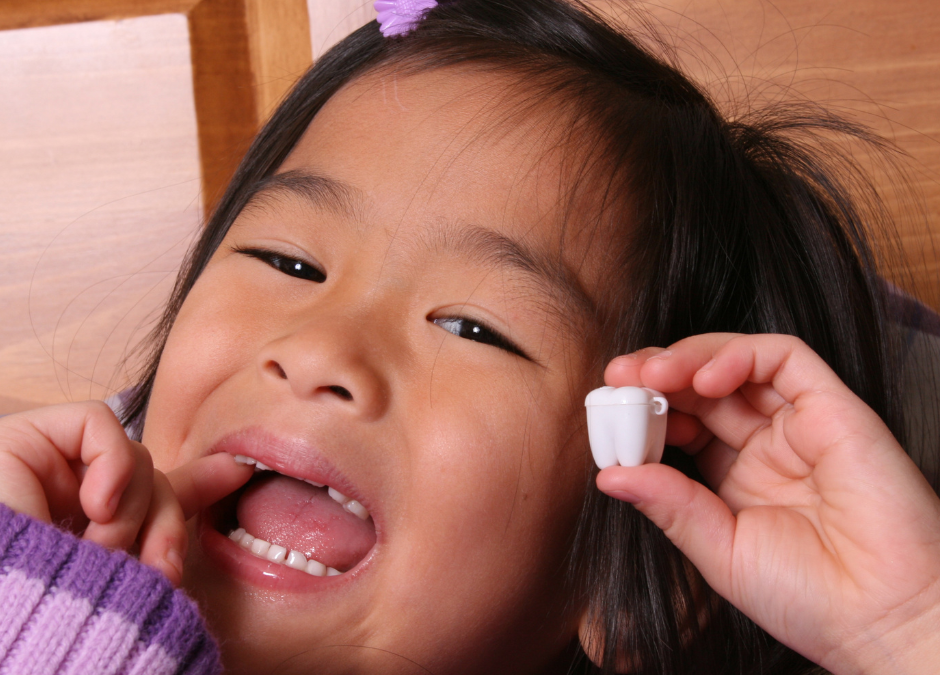
Sep 21, 2022
At Falmouth Dental Arts, we believe that good oral health habits start early. We love helping children learn to take care of their teeth and it’s always an exciting time when a little one has his or her first loose tooth! Your child may have questions about having a wiggly tooth and may be wondering what to do if he or she loses it at school. Here are six tips that will make having a loose tooth a fun and stress-free experience!
1) Be Prepared
Most children have their first loose tooth between the ages of 6-7, although some may lose a tooth earlier and some later. It is very likely that once your child reaches kindergarten age, he or she will find themselves heading to school with a loose tooth. Prepare your child for this possibility by telling them that it’s okay – this is a completely normal and exciting milestone! This handy tooth chart, created by the American Dental Association, will help give you (and your child) an idea of what to expect and when!
2) Tell Your Child’s School
It’s a good idea to let your child’s teacher know if your child has an extremely wiggly tooth, especially if he or she is feeling nervous about it. Elementary-level teachers have lots of experience with their students losing teeth at school and can refer your child to the nurse to rinse their mouth or get cleaned up if the tooth does come out. Let your child know he or she can bring the tooth home in a plastic baggie or wrapped in a tissue to put under their pillow for the Tooth Fairy’s visit later on.
3) To Pull or Not to Pull – Let Your Child Take the Lead
You may be wondering if you should pull out your child’s loose tooth at home or let it fall out on its own. The answer is…let your child decide! If the tooth is really wiggly or is causing them discomfort, your child may just want to get it over with and ask for your help. If they do, place a tissue over the tooth and gently squeeze. If it’s ready, it should just come right out. Tell him or her how brave they were and how the Tooth Fairy recognizes extra courage!
4) Keep Calm and Continue Your Child’s Dental Routine
Tell your child that they should not touch or prod the space where their tooth used to be. The area should heal up quickly, although he or she may want to eat on the other side of their mouth if the gum area is still feeling sensitive. Your child should continue their regular dental routine – brushing twice a day and flossing daily – as usual and should rinse or brush gently around the area to make sure it stays clean and no food gets stuck.
5) Bring on the Tooth Fairy!
If you’re open to a little make-believe, a visit from the Tooth Fairy can become a really special tradition for your child. Check out our past post about fun Tooth Fairy traditions from around the world. Encourage your child to write a note to the tooth fairy, letting her know that he or she lost her tooth at school or that they asked you to pull it out at home. Have them leave the note under their pillow, or on their door so the tooth fairy doesn’t forget to visit (wink, wink). Consult other parent friends to determine “the going rate” for a gift from the Tooth Fairy, or set your own rate and explain that every child has his or her own special fairy that’s just right for them.
6) Get in Touch with Us if You Have Questions!
If your child seems to be very early or late in losing a baby tooth or loses a tooth due to injury, do not hesitate to give us a call at 207.781.5900. Our team of compassionate dental professionals would be happy to answer any questions you may have or can schedule an exam for your child with Dr. Brunacini or Dr. Karagiorgos. While your child is here for his or her appointment, we can also go over their dental routine to make sure they are taking care of their baby teeth as well as the new permanent teeth growing in!
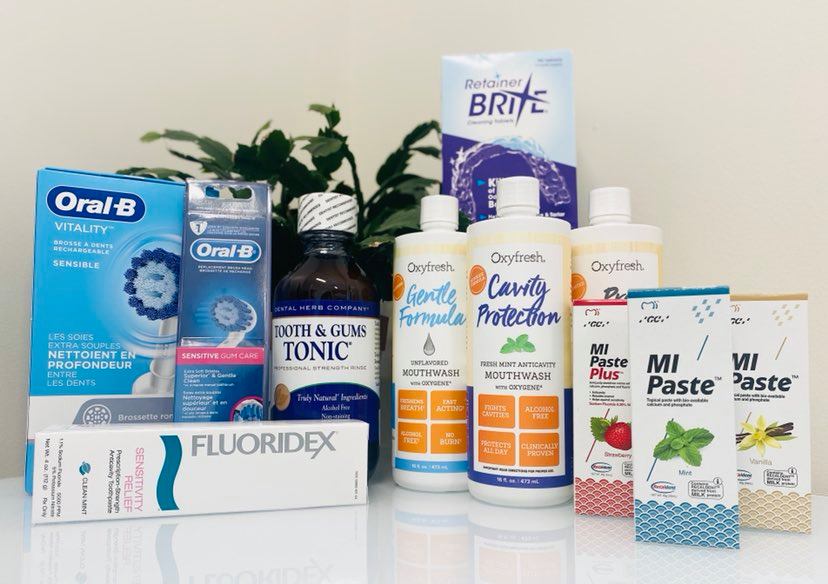
Sep 20, 2022
Dental Hygiene Products We Recommend to Our Patients
Here at Falmouth Dental Arts, we endorse and recommend a variety of professional products to our patients. “Based on our team’s many years of combined experience, we have developed a list of products we think are particularly effective at supporting our patients’ home dental hygiene routines and keeping their teeth and gums healthy in-between visits,” says Ashley Landry, Clinical Director, and Dental Hygienist at FDA. Here’s more information about the products we think can give an extra oomph to your oral health care!
Mouth Rinse
Oxyfresh is a gentle but powerful mouthwash that uses natural ingredients like mint to help keep your breath fresh all day. Oxyfresh is alcohol and dye-free, naturally sweetened, and made in the USA. It’s specially blended with Zinc and Oxygen®, a proprietary bad-breath fighter, to promote oral health while neutralizing bad breath. We offer Oxyfresh in 3 different versions: a gentle mint-flavored Pro-Formula, non-flavored Gentle Formula, and Cavity Protect with the added benefit of fluoride.
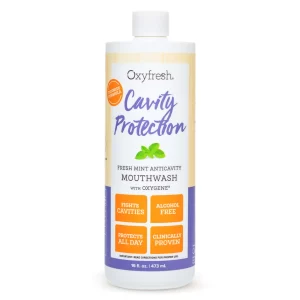
Tooth & Gums Tonic is a natural, professional-strength mouth rinse formulated to reduce oral bacteria and inflammation with pure essential oils. This alcohol-free rinse is blended with essential oils and herbs such as Echinacea and Gotu Kola, known for their anti-inflammatory and breath-freshening properties – a great alternative to other prescription mouth rinses!
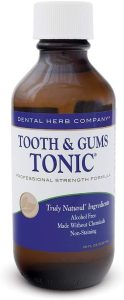
Toothpaste
MI Paste and MI Paste Plus is uniquely-formulated toothpaste fortified with calcium, fluoride, and phosphate that helps replace beneficial minerals lost from the tooth’s structure. MI Paste helps to prevent decay, sensitivity, tooth erosion, and tooth wear while restoring enamel gloss. A great product for patients who experience dry mouth and hypersensitivity as well as for those receiving orthodontic treatment.
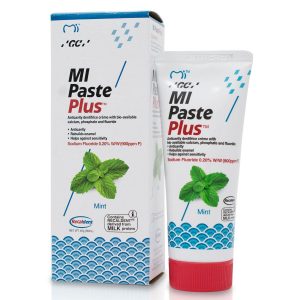
Fluoridex is prescription-strength fluoride toothpaste designed for use at home. It helps to prevent tooth decay and reduce harmful bacteria. Fluoridex is a great addition to your home care routine that helps to strengthen the enamel, reduce tooth sensitivity, and protect your teeth. Used over time, Fluoridex can help strengthen tooth enamel and prevent cavities.
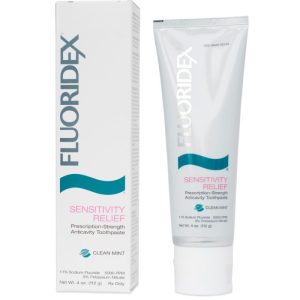
Retainer Cleaner
Retainer Brite is a great way to keep your night guard or other removable appliance, such as Invisalign, clean and ready for daily use. The specially-formulated tablets help protect and preserve appliances while also gently cleaning them. They are simple to use and kill up to 99% of common odor-causing bacteria. They also work to eliminate the cloudy film and plaque buildup when used to clean your retainer every day.
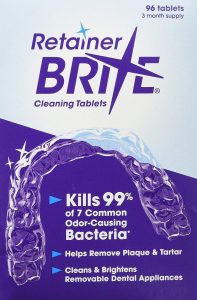
Toothbrushes
Oral B Electric Toothbrushes are designed to give you the best possible tooth cleaning at home. Electric toothbrushes effectively remove plaque while being gentle on your gums. We recommend these electric toothbrushes to our patients for a successful home care routine as they efficiently reduce plaque and prevent gingivitis.
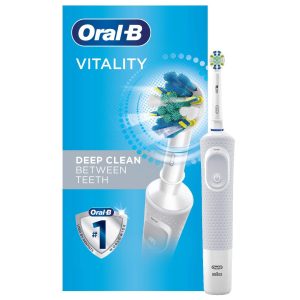
If you are interested in trying one of the products listed above or are wondering which one might be right for you, our team of dental professionals is happy to make a recommendation. Ask us any questions you might have at your next appointment or give us a call at 207.781.5900!

Aug 12, 2022
At Falmouth Dental Arts, we’re all about our patients’ comfort! From start to finish, we want your entire experience to feel comfortable both physically and emotionally. Many patients feel anxiety around their oral health care appointments and we’re here to help. That’s why we approach dentistry with the whole body in mind, so we can better educate and communicate with our patients. Our goal is to create a partnership where you feel heard and respected. So let us help you relax and receive the best oral health care possible! Here are some of the ways we support our patients to find their inner Zen!
It all starts when you walk through the door. From our friendly front desk staff to our comfortable waiting area, we have created an environment that is meant to help soothe and relax you. We want to make each visit to the dentist as calming and stress-free as possible. We will always explain what to expect during your visit and our up-to-date anesthesia techniques make dental treatments a breeze.
If you are feeling nervous before or during your visit, we recommend that you try relaxation techniques, such as breathing and visualization. Taking slow, deep breaths and visualizing yourself in a peaceful, relaxing place is helpful for many people. Also, many patients like to have something to distract them and bring their earbuds to listen to music or a podcast during their appointment. Breathe in, breathe out…and find what works best for you!
If you experience anxiety during dental procedures, please discuss this with Dr. Brunacini or Dr. Karagiorgos, or another member of the FDA team as we have options to help you stay calm, cool, and collected. We offer nitrous oxide as well as anxiolysis sedation for our patients who need a little more help with staying comfortable and relaxed before and during their visits. Patients that have mild to moderate dental anxiety are good candidates for sedation, as well as patients that have a harder time getting numb.
So…relax! We’re here to help make your oral health care experience supportive, soothing, and comfortable! If you’re interested in learning more about sedation options or other ways for you to prepare for your next dental visit, give us a call at 207.781.5900 to schedule your baseline appointment.
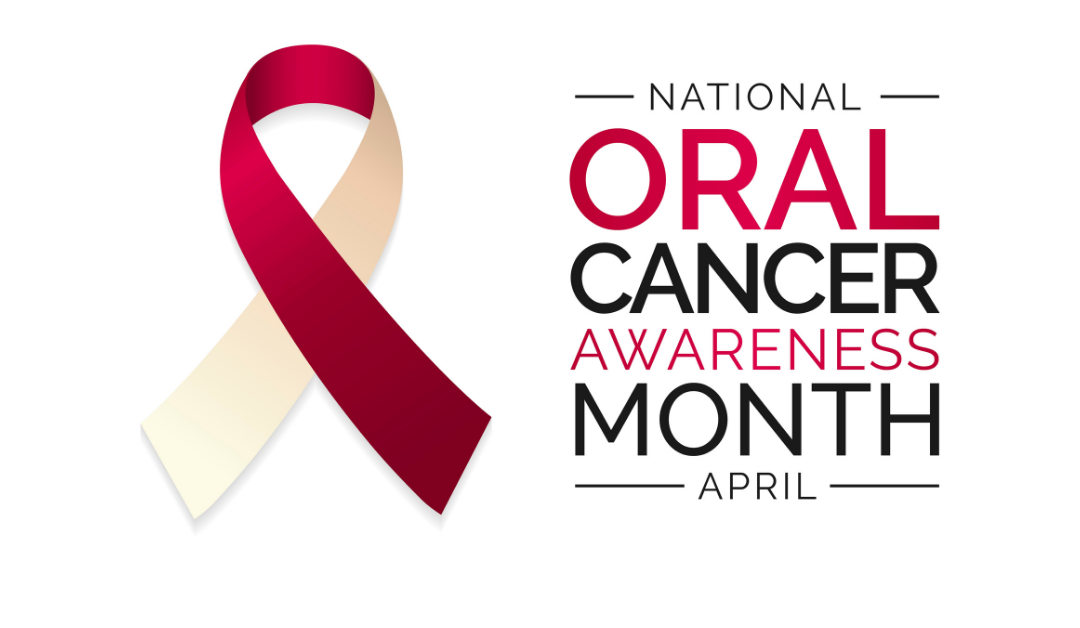
Apr 14, 2022
April is Oral Cancer Awareness Month, an opportunity for dental practices like Falmouth Dental Arts to raise awareness about the importance of oral cancer detection and prevention. When treated early, oral cancer has an estimated 80-90% survival rate. As your dental care partners, we believe strongly that we are an essential part of your healthcare team. As such, we’ve had a long-standing commitment to screening our patients for early signs of oral cancer. We are excited to announce that we now have a new state-of-the-art diagnostic tool to assist us in the oral cancer screening process – a CBCT 3D x-ray machine. 3D imaging allows us to better diagnose a range of dental issues, including oral cancer. Learn more from Dr. Brunacini, as he explains some of the advantages of CBCT 3D x-rays.
1) Why has FDA upgraded to 3D x-rays?
Dr. Brunacini: 3D x-ray or CBCT (cone beam computed tomography) technology allows us to better visualize all of the structures within the head, neck, and mouth so that we can better assess our patients’ oral health.
2) How are 3-D x-rays different from the traditional digital 2D x-rays?
Dr. Brunacini: For years, dentistry has been taking and reviewing x-rays in 2-D, which can sometimes make it difficult to determine a proper diagnosis. Without the 3rd dimension, it can be difficult to see an area of concern, such as a gum or tooth infection. Being able to take 3D images allows us to more thoroughly and completely diagnose our patients prior to performing any dental treatment, especially oral surgery.
3) Will 3D x-rays replace traditional 2D x-rays?
Dr. Brunacini: 3D imaging won’t replace our typical bitewing x-rays, which are used to locate areas of decay. Rather, 3D x-rays can be used as an additional tool when trying to diagnose an area of concern or when planning for dental implants. It can also be helpful for patients with a strong gag response, as 3D x-rays allow us to get the imaging we need without placing anything into their mouth, making the process much easier and more comfortable for them.
4) How can 3D x-rays be helpful in the early detection of oral cancer?
Dr. Brunacini: CBCT technology can be used as an additional screening tool in diagnosing oral cancer. It doesn’t eliminate the need for our other screening methods, such as a visual or physical exam or VELscope screening. VELscope is a non-invasive device that emits a safe blue light to detect abnormal cell growth that could be cancerous or precancerous. If we identify any areas that look suspicious through these methods, 3D imaging can be helpful in determining subsequent steps for the ideal treatment of a lesion. As we see many of our patients twice a year, we now have a wider range of diagnostic tools available to us to screen for oral cancer during routine hygiene appointments, including CBCT x-rays.
Thank you, Dr. Brunacini!
If you have any additional questions about the oral cancer screening process, CBCT 3D x-rays, or would like to schedule an appointment, give us a call at 207.781.5900. We’re here to help!
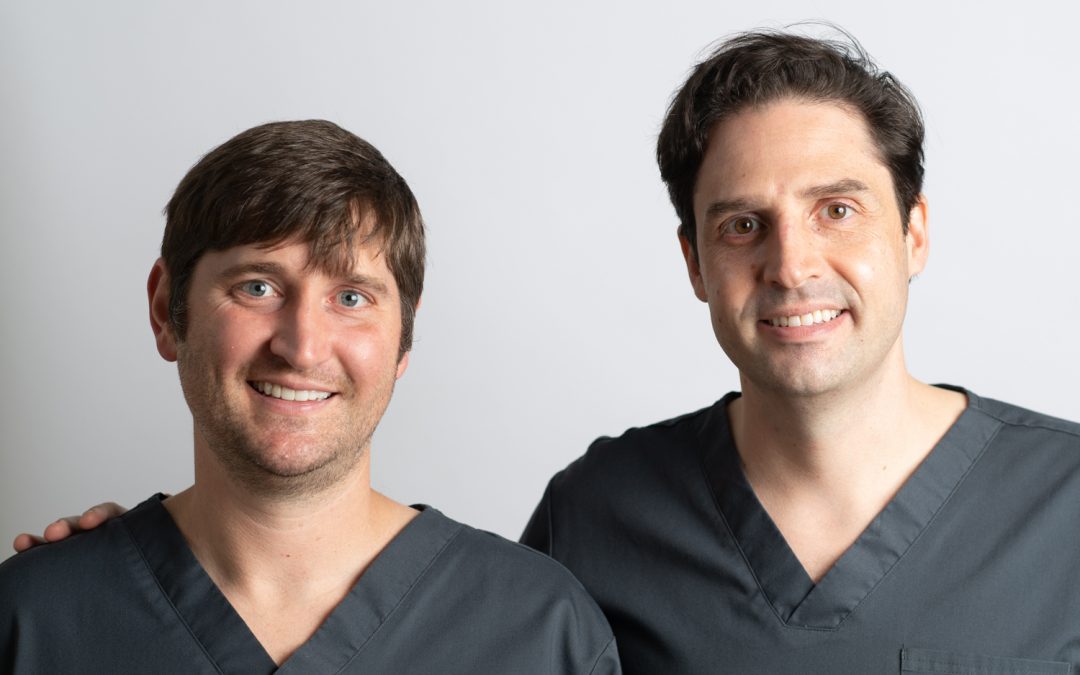
Mar 15, 2022
March is a month full of celebrations to make you smile…like Dental Assistants’ Week and National Dentist’s Day! Celebrated on March 6, National Dentist’s Day is to recognize all the men and women who keep our teeth and mouths healthy! At FDA, we are lucky to have two of the most amazing dentists around – Dr. Brunacini and Dr. Karagiorgos, who are both deeply devoted to providing the best oral health care possible. We wanted to know more about what makes them both such great dentists, so we asked them a few questions about their profession.
What is your favorite part of your job?
Dr. Brunacini: I like having the ability to find a solution to someone’s dental concerns – whether it is in an emergent situation or minor day-to-day concerns. I am always encountering new situations that require me to pull from previous experiences or to think “outside the box.” I love working together with patients to find the right care for their needs.
Dr. Karagiorgos: Everything. I absolutely love being a dentist! Dentistry is a perfect blend of art and science and feeds my passion for each. My career before dentistry was engineering. In my mid-twenties I became very ill and came close to losing my life. Thankfully, I survived. Going through that experience, I came to realize how short life can be and that each day is a gift. I spent a good deal of time looking for a career that could fulfill me professionally, personally, and allow me to help people. I am very fortunate to have found all of those things in dentistry. The fact that I get to do this job at FDA with a wonderful business partner, the best staff, and fantastic patients makes it just that much better.
What is the most surprising thing that has happened during your dental career?
Dr. Brunacini: It amazes me how much dentistry is in the “people business” more than anything. In dental school, all I could focus on was developing the technical skills to do the procedures, but you soon realize that it really is about building trust with patients and creating relationships by treating them well. That is what we strive to do at FDA everyday.
Dr. Karagiorgos: Before dental school I was under the impression that when you graduate that you are a dentist and then you work as a dentist. Having been out of school for many years now, I have a different understanding. While graduating dental school prepares a person to learn to be a dentist, I find that the field is changing so quickly nowadays that unless you are constantly expanding your education, you are falling behind.
What are you looking forward to in dentistry?
Dr. Brunacini: I am excited about the technological advancements on the horizon. The continued progression of digital dentistry gives us the ability to better plan out treatments before procedures. This ability will continue to improve outcomes for our patients, which is always our goal.
Dr. Karagiorgos: This is a very interesting time in dentistry. The integration of computers and technology into dentistry makes it a very dynamic profession. Dentistry at Falmouth Dental Arts today is almost unrecognizable from when I first started. To remain a licensed dentist in Maine we have specific amounts of required continuing education that we need to fulfill by taking classes in person or online, attending seminars, and dental meetings. Brian and I are finding that we are far and away exceeding these requirements in order to keep FDA at the crest of the wave of modern dentistry.
Thank you Dr. Brunacini & Dr. Karagiorgos for all you do to keep us healthy!
Another great way to say thank you to the doctors is to keep up with your home oral health care – brushing twice-a-day, flossing once-a-day – and to schedule regular check up appointments. If you need to schedule your next appointment, please give us a call at 207.781.5900.
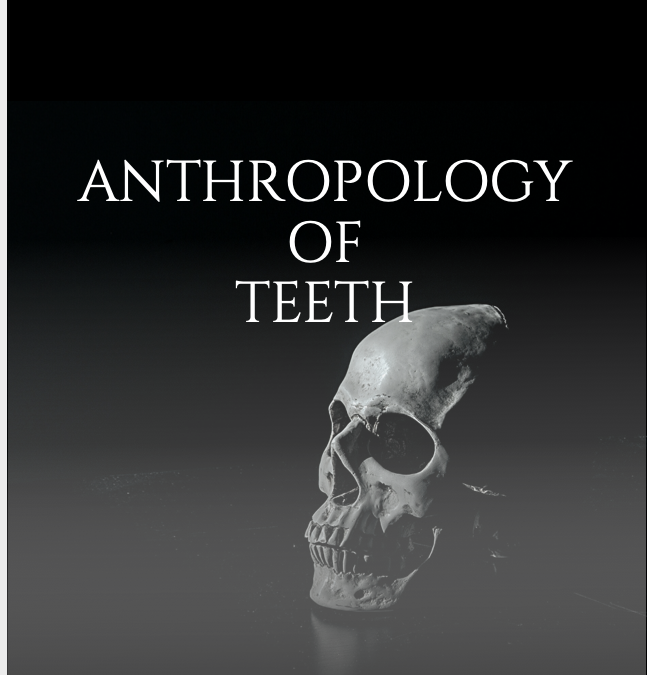
Nov 19, 2021
Need a fun conversation topic for your Thanksgiving gathering? How about teeth? Our teeth are fascinating! More than mere pearly chompers that chew your food and give you a beautiful smile, they can also convey a lot of information about us. Just ask Dr. Brunacini, your dentist and favorite amateur dental anthropologist! This month we close our interview series with Dr. Brunacini on Dental Anthropology. Join us for Part 3: If These Teeth Could Talk.
Why are teeth such a useful tool in studying our past?
Dr. Brunacini: Teeth can give us a snapshot in time about someone’s life, such as their age as well as their diet. They are exposed to our diet in ways that other body parts are not, so they often can convey useful information about a person and their environment. Also, teeth are unique in that they are slow to decompose. Your tooth enamel is the hardest substance in your body, stronger than your bones!
What can an anthropologist learn from our teeth?
Dr. Brunacini: Anthropologists can learn a lot from our teeth. Teeth can help determine how old a person was at death, what kind of health they were in, and what kind of diet they had. Teeth can even provide information about the human’s cultural rituals, such as cultures where dental modifications played an important role.
What is something fascinating you’ve learned from the study of teeth?
Dr. Brunacini: For me, the most interesting thing is how our jaws have become smaller over time, possibly due to diet changes, which has contributed to some common chronic diseases. Of course, with smaller jaws there is less room in our mouth for our teeth, which has made wisdom tooth extractions commonplace. Also, sleep apnea and acid reflux are very common diagnoses now that have some connection to jaw development from a young age.
As a dentist, is there an example of information that a patient’s teeth tells you that perhaps they themselves do not?
Dr. Brunacini: In modern days, the teeth we examine and evaluate daily gives us insight into a patient’s overall health. We commonly discuss issues such as bruxism (tooth grinding) with our patients, but we can also see signs of acid reflux and even sleep apnea that can affect the entire body. A patient may not be aware that their teeth can provide us with this sort of information about their health, or that as their dentist we can help them. Our goal is to be a partner for our patients in their oral care, which includes their overall health, and we are always happy to discuss treatment options that can help improve the health of their teeth and their body!
Thank you, Dr. Brunacini!
If you have questions about your teeth or need to schedule your next appointment, please give us a call at 207.781.5900.












